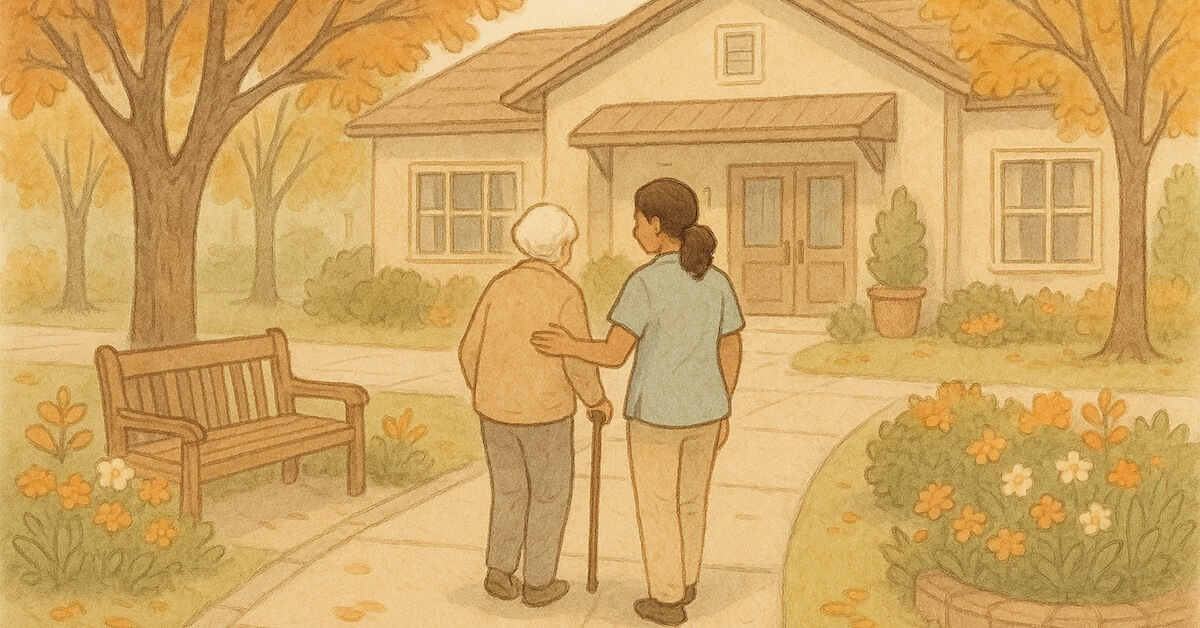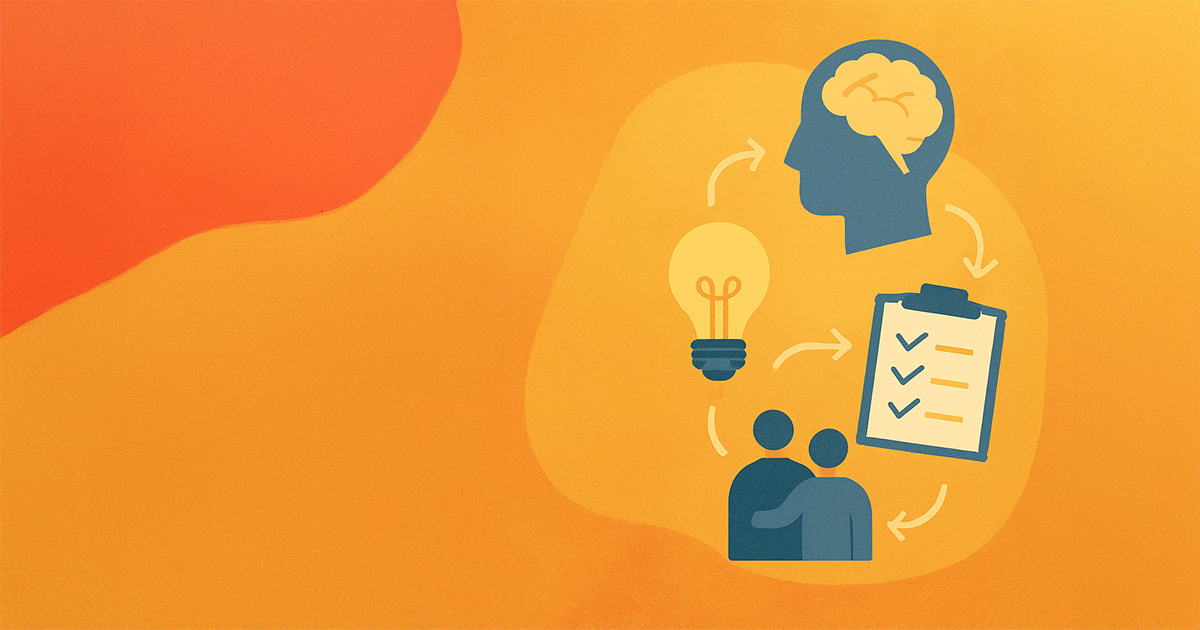From Classroom to Care Floor: Making Dementia Training Stick

In care communities across the country, a familiar story plays out every day. A staff member completes a training, nods along with the key points, and maybe even walks away inspired. But when the next shift begins, faced with a hallway full of needs, time constraints, and the unpredictable nature of dementia, much of that knowledge stays tucked away in a binder or learning portal.
This is the challenge of transfer of training — the disconnect between what care professionals learn in a structured setting and what they’re able to consistently apply on the care floor. It’s not an issue of intention. Caregivers want to do their best. Most enter this field because they care deeply. But without the right tools, support, and reinforcement, even the most powerful training sessions risk becoming fleeting moments rather than lasting change.
So how do we bridge that gap? How do we move from good intentions to good habits?
It’s Not a Lack of Knowledge. It’s a Lack of Translation.
The traditional model of dementia education often emphasizes information delivery. Here’s what dementia is. Here are the stages. Here’s what you might see in a resident living with memory loss. But for the staff member facing a resident who resists care, lashes out in fear, or retreats into silence, those facts don’t always translate into action.
What’s missing isn’t more data. It’s depth of understanding and practiced responses that help caregivers act with confidence and compassion under pressure.
Programs like Dementia Live®, Compassionate Touch®, and the Facilitator Dementia Education Series are designed to shift the experience. They don’t just teach. They immerse, model, and equip.
From Awareness to Empathy: Experiencing Dementia Live®
Dementia Live isn’t a lecture. It’s an immersive simulation that brings participants into the world of someone living with dementia. With sensory-altering gear and real-life tasks, caregivers experience firsthand what confusion, disorientation, and frustration can feel like.
This kind of training doesn’t just inform. It transforms. It awakens empathy. It helps caregivers pause and consider what’s behind a behavior instead of reacting to the behavior itself.
That pause is everything. In that pause, a new care response can be born, grounded in understanding instead of urgency.
Compassionate Touch®: Turning Insight Into Interaction
Empathy is the foundation, but practical skills are the bridge. That’s where Compassionate Touch comes in. This hands-on approach teaches care partners how to combine skilled touch with specialized communication techniques to reduce stress, foster trust, and support well-being.
When staff learn how to guide a resident with a calming hand on the shoulder or how to speak with rhythm and warmth to build connection, they carry that into every moment of care. Bathing, feeding, transitioning, even de-escalating challenging behaviors can all reflect this approach.
It’s more than technique. It’s a mindset shift from “doing for” to “doing with.”
And once that shift happens, something else follows: behavior change that lasts.
The Facilitator Dementia Education Series: Making It Stick
One of the biggest hurdles in adult education is retention. Caregivers juggle constant demands. They need training that’s accessible, adaptable, and repeatable.
The Facilitator Dementia Education Series was created with this reality in mind.
It’s a ready-to-use training toolkit that equips leaders within organizations to guide meaningful dementia education sessions. Each session includes lived-experience videos, facilitator guides, discussion prompts, and focused micro-trainings built around the real challenges staff face.
Topics include:
- Better Communication — Practical ways to build trust, listen actively, and adapt when communication breaks down.
- Dining & Nutrition — Strategies to create calm, enjoyable mealtime experiences that restore dignity and reduce stress.
- Assisting with Bathing — Approaches that reduce fear, embarrassment, and discomfort while preserving privacy and respect.
- Stress Reactions — Tools to recognize distress signals early, prevent escalation, and respond with empathy.
- Activities & Life Engagement — Methods to bring joy, purpose, and identity into daily life through meaningful activities.
- Improving the Care Process — Guidance for transforming daily routines like dressing or meals into moments of connection and dignity.
Each topic is concise yet rich, designed for real-time integration. Facilitators can lead sessions during team meetings, shift changes, or as part of new staff onboarding.
The result is a rhythm of learning that becomes part of the culture, not a one-time event on the calendar.
Culture Change Starts on the Floor
Making dementia training stick requires more than a workshop. It requires a culture where education is continuous, relevant, and relationship-centered.
It means training isn’t a checkbox. It’s a conversation. It’s a reflection. It’s a new way of seeing the person in front of you.
When team members feel empowered, when they have access to tools that make their job more human and more manageable, they respond with resilience instead of burnout. They find joy again. And the people they care for feel that difference.
We’ve seen it across thousands of organizations. We’ve seen it in the faces of caregivers who finally feel equipped. We’ve seen it in the residents who smile more, resist less, and re-engage with the world around them.
This is what happens when training moves from the classroom to the care floor.
Let’s Reimagine Dementia Care Together
At AGE-u-cate Training Institute, we believe that quality dementia care starts with connection. That’s why every program we create—from immersive simulations to practical toolkits—is designed to honor the humanity in every interaction.
Our mission is simple. We empower care partners, uplift organizations, and improve the lives of people living with dementia.
Let’s make dementia training stick and make care better where it matters most.


